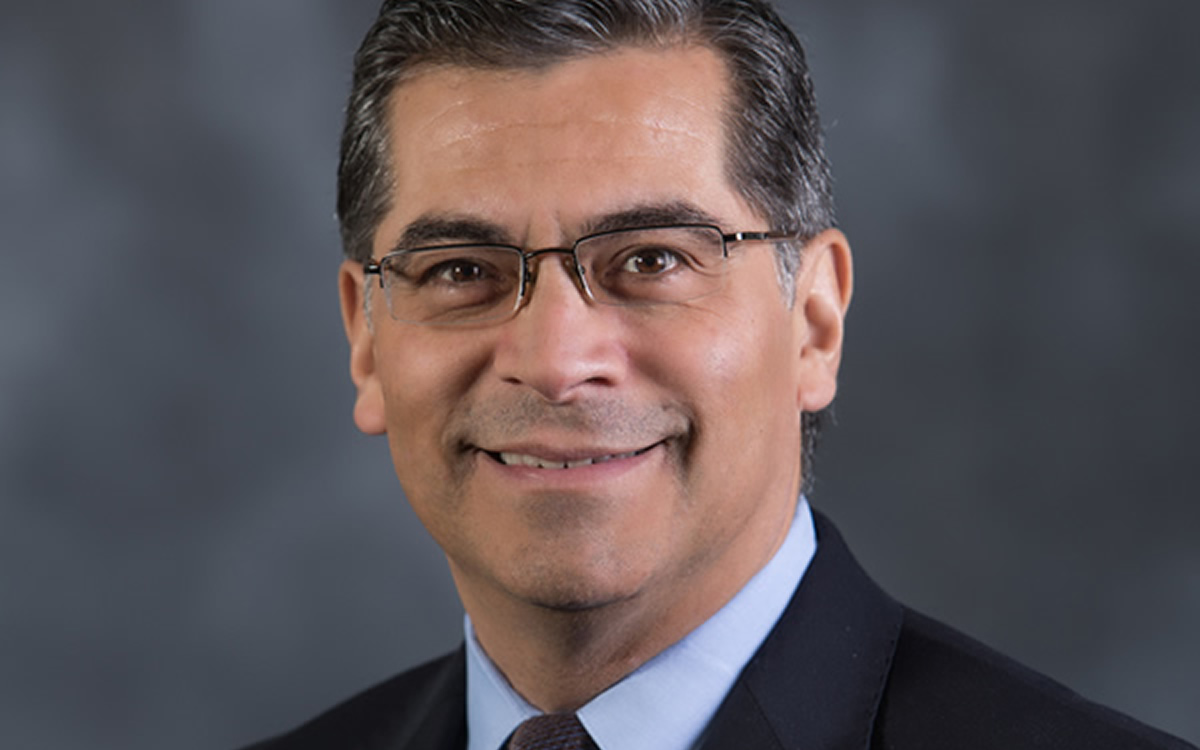News
Levin: Senate to take up ‘Don’t Ask’ in September
Senate Armed Services Committee Chairman Carl Levin (D-Mich.) told the Blade on Thursday he’s expecting the full Senate to take up “Don’t Ask, Don’t Tell” repeal in September after lawmakers return from August recess.
Advocates have been anticipating a vote on the fiscal year 2011 defense authorization bill — the vehicle to which repeal language is attached — after the Senate Armed Services Committee on May 27 attached the provision to the bill and reported out the legislation to the floor.
Levin said the quickest possible route for passing repeal in the Senate is now reaching an agreement this month to take up the defense bill shortly after lawmakers return from August break.
“What we’re hoping to do before August is to have an agreement which will pave the way for it being brought up right after the recess,” Levin said.
Bryan Thomas, a Levin spokesperson, later clarified that Levin was referring to an agreement negotiated between majority and minority leadership.
Levin, who had earlier said he was hoping for a vote on the defense bill in July, said this agreement would eliminate the possibility of a filibuster on a motion to proceed after lawmakers return.
Aubrey Sarvis, executive director of the Servicemembers Legal Defense Network, said his organization is also urging Senate Majority Leader Harry Reid (D-Nev.) to bring the defense legislation to the floor “right after the Labor Day recess.”
“Yes, it would have been better if we were on the Senate floor this month, but the calendar was just too crowded,” Sarvis said.
Sarvis said scheduling the defense bill for a vote in early September is “absolutely essential” to move forward with repeal to finish legislative action “before Congress goes into ‘lame-duck mode.'”
“This is the bill that provides for the pay and benefits and equipment for all service members, straight and gay,” he said. “This bill and these core benefits for our [service members] should not be caught up in post election games and posturing.”
In addition to wanting to move forward with the defense legislation, proponents of “Don’t Ask, Don’t Tell” repeal have expressed concern about opponents of the language filibustering the defense legislation as a whole, or stripping out the provision with a substitute amendment or a motion to strike.
Levin said he doesn’t think either a filibuster or an amendment would succeed, but added the odds of a successful amendment passing the Senate may “depend on what the wording is.”
The senator said he hasn’t seen any draft amendments relating to the “Don’t Ask, Don’t Tell” language, but predicted one would come to the floor.
“I haven’t seen it,” Levin said. “I know there will be, but I haven’t seen it.”
Sarvis said he shares Levin’s confidence that repeal language in the defense legislation can be retained.
“The Senate votes are likely to be close, but, in the end, I think, repeal proponents will prevail,” Sarvis said.
Federal Government
HHS reverses Trump-era anti-LGBTQ rule
Section 1557 of the Affordable Care Act now protects LGBTQ people

The U.S. Department of Health and Human Services Office for Civil Rights has issued a final rule on Friday under Section 1557 of the Affordable Care Act advancing protections against discrimination in health care prohibiting discrimination on the basis of race, color, national origin, age, disability, or sex (including pregnancy, sexual orientation, gender identity, and sex characteristics), in covered health programs or activities.
The updated rule does not force medical professionals to provide certain types of health care, but rather ensures nondiscrimination protections so that providers cannot turn away patients based on individual characteristics such as being lesbian, gay, bisexual, transgender, queer, intersex, or pregnant.
“This rule ensures that people nationwide can access health care free from discrimination,” said HHS Secretary Xavier Becerra. “Standing with communities in need is critical, particularly given increased attacks on women, trans youth, and health care providers. Health care should be a right not dependent on looks, location, love, language, or the type of care someone needs.”
The new rule restores and clarifies important regulatory protections for LGBTQ people and other vulnerable populations under Section 1557, also known as the health care nondiscrimination law, that were previously rescinded by the Trump administration.
“Healthcare is a fundamental human right. The rule released today restores critical regulatory nondiscrimination protections for those who need them most and ensures a legally proper reading of the Affordable Care Act’s healthcare nondiscrimination law,” said Omar Gonzalez-Pagan, counsel and health care strategist for Lambda Legal.
“The Biden administration today reversed the harmful, discriminatory, and unlawful effort by the previous administration to eliminate critical regulatory protections for LGBTQ+ people and other vulnerable populations, such as people with limited English proficiency, by carving them out from the rule and limiting the scope of entities to which the rule applied,” Gonzalez-Pagan added. “The rule released today has reinstated many of these important protections, as well as clarifying the broad, intended scope of the rule to cover all health programs and activities and health insurers receiving federal funds. While we evaluate the new rule in detail, it is important to highlight that this rule will help members of the LGBTQ+ community — especially transgender people, non-English speakers, immigrants, people of color, and people living with disabilities — to access the care they need and deserve, saving lives and making sure healthcare professionals serve patients with essential care no matter who they are.”
In addition to rescinding critical regulatory protections for LGBTQ people, the Trump administration’s rule also limited the remedies available to people who face health disparities, limited access to health care for people with Limited English Proficiency, and dramatically reduced the number of healthcare entities and health plans subject to the rule.
Lambda Legal, along with a broad coalition of LGBTQ advocacy groups, filed a lawsuit challenging the Trump administration rule, Whitman-Walker Clinic v. HHS, and secured a preliminary injunction preventing key aspects of the Trump rule from taking effect.
These included the elimination of regulatory protections for LGBTQ people and the unlawful expansion of religious exemptions, which the new rule corrects. The preliminary injunction in Whitman-Walker Clinic v. HHS remains in place. Any next steps in the case will be determined at a later time, after a fulsome review of the new rule.
GLAAD President Sarah Kate Ellis released the following statement in response to the news:
“The Biden administration’s updates to rules regarding Section 1557 of the ACA will ensure that no one who is LGBTQI or pregnant can face discrimination in accessing essential health care. This reversal of Trump-era discriminatory rules that sought to single out Americans based on who they are and make it difficult or impossible for them to access necessary medical care will have a direct, positive impact on the day to day lives of millions of people. Today’s move marks the 334th action from the Biden-Harris White House in support of LGBTQ people. Health care is a human right that should be accessible to all Americans equally without unfair and discriminatory restrictions. LGBTQ Americans are grateful for this step forward to combat discrimination in health care so no one is barred from lifesaving treatment.”

Maryland Gov. Wes Moore on Thursday signed a bill that seeks to combat efforts to ban books from state libraries.
House Bill 785, also known as the Freedom to Read Act, would establish a state policy “that local school systems operate their school library media programs consistent with certain standards; requiring each local school system to develop a policy and procedures to review objections to materials in a school library media program; prohibiting a county board of education from dismissing, demoting, suspending, disciplining, reassigning, transferring, or otherwise retaliating against certain school library media program personnel for performing their job duties consistent with certain standards.”
Moore on Thursday also signed House Bill 1386, which GLSEN notes will “develop guidelines for an anti-bias training program for school employees.”

The Mexican Senate on Thursday approved a bill that would ban so-called conversion therapy in the country.
Yaaj México, a Mexican LGBTQ rights group, on X noted the measure passed by a 77-4 vote margin with 15 abstentions. The Chamber of Deputies, the lower house of Mexico’s congress, approved the bill last month that, among other things, would subject conversion therapy practitioners to between two and six years in prison and fines.
The Senate on its X account described conversion therapy as “practices that have incentivized the violation of human rights of the LGBTTTIQ+ community.”
“The Senate moved (to) sanction therapies that impede or annul a person’s orientation or gender identity,” it said. “There are aggravating factors when the practices are done to minors, older adults and people with disabilities.”
Mexico City and the states of Oaxaca, Quintana Roo, Jalisco and Sonora are among the Mexican jurisdictions that have banned the discredited practice.
The Senate in 2022 passed a conversion therapy ban bill, but the House of Deputies did not approve it. It is not immediately clear whether President Andrés Manuel López Obrador supports the ban.
Canada, Brazil, Belgium, Germany, France, and New Zealand are among the countries that ban conversion therapy. Virginia, California, and D.C. are among the U.S. jurisdictions that prohibit the practice for minors.
-

 District of Columbia4 days ago
District of Columbia4 days agoCatching up with the asexuals and aromantics of D.C.
-

 South America3 days ago
South America3 days agoArgentina government dismisses transgender public sector employees
-

 Maine5 days ago
Maine5 days agoMaine governor signs transgender, abortion sanctuary bill into law
-

 District of Columbia4 days ago
District of Columbia4 days agoBowser budget proposal calls for $5.25 million for 2025 World Pride













